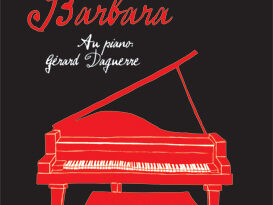PADOVA TEATRO VERDI, 29 DICEMBRE 2018. “La Cenerentola” Gioacchino Rossini
Why go to Padova in the heart of the winter travelling five hours by train and looking at a sad barren landscape of Veneto to listen to an Opera? Because the city we live in Perugia, the capital of Umbria (300.000 people) does not have an Opera season in spite of 3 Opera houses! So Padova: what a wonderful surprise! A modern-old city in Veneto with multiples shopping galleries, sparkling in the evening rich with garlands of flowers- lights hosting all the famous Italian brand names: Pucci, Prada, Max Mara, Bottega Veneto, even Benetton is making an elegant show of its usually low cost low taste product. And for the glorious finale Hermes for people who do not look at price tags. But back to Cenerentola, which was created by Rossini in 24 days with a libretto by Ferretti finished in 22 days, they were in a nervous competition which gave us a work of genius. The genius of Pesaro, was then only 24 years old and the Opera was given in Prima Assoluta at Teatro del Vale in Roma the 25th January 1817, almost 200 years ago to the day. Reception was not good with scant applauses and a lot of “fischi”. The public might have been right since everything was done in a hurry and the singers had only 2 rehearseals and apparently were “paralyzed with fear” attacking this 3 hours formidable document. The story: meet the 2 daughters of baron “Don Magnifico”: Clorinda and Tisbe and also Angelina, his protégée (figliastra), who are plotting ways to get married. Enter Alidoro, who is searching a wife for his visiting prince Ramiro. Follows Dandini, the servant of the prince, who enters the stage with his regalia, disguised as the prince proper. So you can see for yourself how complicated the rest of the story will be, since we have met in a short while all the six performers who will proceed to untangle this by now usual scenario of Italian opera buffa where everybody is disguised as somebody else and all the boys and girls are testing each others fidelity. As usual all ends well with true love and munificence gaining the upper hand in a felicitous matrimonio of Angela and the Prince. Is this a Teatro comico accompanied by a cast of super singers desperate to unload a wickedly difficult score? Who are these annoying untalented Tyroleans sexted mimes that are disturbing everybody on the stage and in the hall? Why are they there?? Is this an attempted solution for the 30% unemployment of young people in Italy? Is this a crowd of amateurs who entered the Opera by mistake through the backdoor? And why is this musically wonderful all male choir dressed in this shabby “armee de salut” hand me down. Why is the Corus furiously rope fighting in the middle of act one? What is the sense of the silly school class as they say in Italian “che c’entra?”? What are these unruly children running around on the stage between the legs of the singers. Singers who can’t seat still for a second performing silly repetitive gags. Really Mr. Gianni you must go back to the regista school if there is such a thing and start anew or just turn to the thing you seem you like most: Barnum circus. The cast: what a spectacular group of singers, valiantly fighting to have the score heard in this overdirected pandemonium. Starting at the top Annalisa Stroppa, the mezzo Angelina: has all the rainbow colors of a splendid voice: the high and the mezzo and even the low notes, them the warm tone and veloute color as well as the Rossini trills. By right a diva who should of have a warmer applause them the economical one awarded. Coming a close second is Alidoro, the super bass of Gabriele Songa: a full throated voice resonant, warm with the a splendid soffragio. Then Don Palmiro the tenor prince: a young voice with reach possibilities hitting high C’s with ease who become more mobile as the story unfolder. The rest of the cast all splendid, especially sister Clorinda (Irina Baiant, the Romanian star) who’s soprano voice, filled up the hall up until the 4th ordine loggione. The quarto (of act 1st) and particularly the frenzied finish of soloist and choir of orchestra concluding the first act. Is a special dish for Rossini tifosi. The second act abounds in marvelous sextet singing, I can’t think of an Italian opera where so much ensemble work is heard. That has required lengthy rehearsals and is one of the most brilliant score by an admirable sextet. The “buca” of Teatro Verdi is very much open and advanced in the heart of platea which makes the orchestra rendition very sharp and alive. Maestro Antonello Anemandi is leading this difficult task with a sure hand a particular bravo for the wind intruments who blend so well with the Rossini vocal thrills. We mentioned the drab haberdashery of the male choir but this took little of their excellent singing as often in other operas of Rossini the choir holds a major role carrying important messages for those interested in understanding the score. The Verdi theatre of Padova with its four ordine and curiously effaced ceiling fresco was full (complete) and the non elegant middle aged public did not work hard enough to compensate this monumental work and star singing. Finally a note on the program (distributed free… bravo!) why giving us the whole libretto verbatim when there was a projected libretto above the curtain and not a word or picture of the wonderful protagonists? Please… For finish on a positive note: please redo this monumental work in semi-scenico with the superb solisti only, plus corus and orchestra minus the Barnum circus. I will travel 5 hours to listen again.
Peter Hermes




